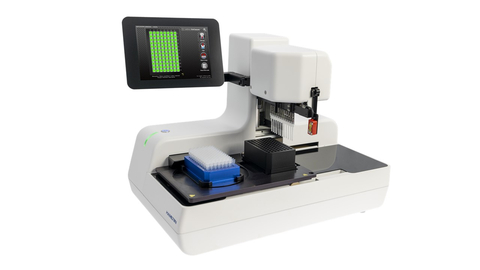WALTHAM, Mass.– Rhinostics, Inc., an innovator in sample collection technologies, today announced that it has received Health Canada approval for sale of its RHINOstic™ Automated Nasal Swab for medically supervised collection or self-collection for ages 18 and above. With this COVID-19 Medical Device Authorization for Importation or Sale, Rhinostics may immediately begin supplying the RHINOstic™ to laboratories across Canada.
“The Health Canada approval for our RHINOstic represents an important milestone in our regulatory and commercialization strategies, validating the clinical performance of our novel nasal swabs compared to flocked nasopharyngeal products,” commented Cheri Walker, PhD, President and CEO of Rhinostics. “More importantly, any Canadian involved in swab sample collection or processing, from patient to clinician to lab technician, can now experience the positive and lasting impact of our innovative automated swab technologies.”
The patent-pending RHINOstic integrates a unique, polypropylene-based swab with an automation-friendly cap. After the nasal sample is collected, the swab is placed into a transport tube with optional 2D/1D barcodes and ready for dry transport. The hydrophobic material and lack of viral transport media (VTM) help to reduce reagent costs, leaking/aerosol risks, and viral transport media-based assay inhibitors, and aid in ensuring complete sample elution compared to antiquated foam or spun fiber swabs.
In an automated workflow with a robotic decapper and automated liquid handler, up to 96 samples may be rapidly and reproducibly accessioned, decapped, and processed into assay plates at once versus the manual process, which can take up to 18 minutes to process the same number of samples. This enables high throughput workflows with minimal manual intervention, supports robust data, and instant scalability to meet surging sample demands without increasing labor costs. It also allows laboratories to manage their staff, where COVID-19 surges will not require armies of temporary workers but instead, relies on robotics to manage the increase of samples during peak times while lowering per sample labor costs to roughly $0.50 per sample.


